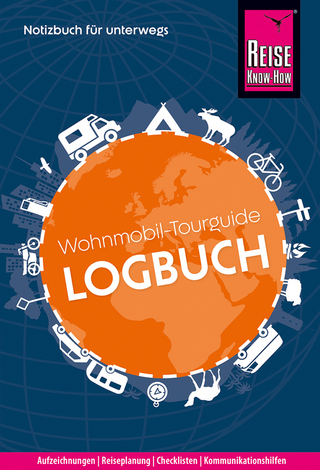
Tourism Management of Russian Behavioral Intention toward Thailand
Anchor Academic Publishing (Verlag)
978-3-96067-152-7 (ISBN)
In the last years, Thailand's tourism industry has made significant progress and contributed largely to the economic development and social progress of the nation. In the context of international integration, the Thailand government has focused on developing the tourism industry even further, enhancing service quality, and expanding operations scale. As a result, the number of tourists coming to Thailand has increased significantly between 2009 and 2015.
This study investigates the perceived value, satisfaction and revisit of Russian tourists who visit Thailand on the basis of selected tourism destinations in Bangkok, Thailand.
Dr. Sinee Sankrusme is currently an associate professor of International Business at the Department of International Business, Faculty of Business Administration, Ramkhamhaeng University, Thailand. She also held a position as head department of international business. She has authored almost one hundred articles and several books related to international business communication, international business and trade documents, international business and effects on changes, organizational behavior and management, agribusiness, agricultural marketing, agricultural business, management and human resource management, etc. Her textbook entitled International Business Correspondence was published in Germany. Most of her research focuses on international business, marketing, human resource, business, organization and management, etc. She is widely recognized for numerous publications in the international business journals and also joined several international business conferences.
Text Sample:
Chapter: Background of the Problem:
Tourism industry is an important source of income for many countries, it has been considered the second important industry of the 21st century. For this reason it is necessary to find reasonable ways and a disciplined plan to achieve more shares in world market. Tourism is among the few businesses in which evidences of production and service in plans related to attraction, maintenance and extension are easily observable. In those countries which rely much on tourism industry, it stands at the top of all other industries as a green and non-polluting industry because it fits cultural, sociological, political and environmental conditions of these countries and has high returns. Although the concept of destination has attracted the attention of many researches working in the fields of marketing and tourism management, academic and disciplined researches on this subject are relatively dew. Some articles written about destination brand have not gone beyond conceptual researches. Measuring the effectiveness of such brands is of high importance and can be determined using customer-based studies. The global tourism industry has evolved into an area of fierce competition, and a fundamental challenge for marketers is to comprehend the distinguishing characteristics of tourist experiences (Perdue, 2002). In the era of globalization almost every company is facing fierce competition. Perceived value and satisfaction are an important tool to capture competitive advantage. As markets have become increasingly competitive, tourists have become more demanding, expecting increasingly to satisfy their needs. Customer perceived value has been examined in marketing literature for almost two decades (Holbrook, 1999, Brady & Robertson, 1999). This reflects the centrality of goods and services in everyday life, and the importance of value decisions within the buying process. Perceived value is defined as ''the consumer's overall assessment of the utility of a product (or service) based on perceptions of what is received and what is given (Zeithaml,1988). Yet the crux of customer-perceived value has not yet been clearly identified, nor have the relative relationships between price, quality, sacrifice and satisfaction been fully explored. Greater convenience, competitive prices and time saving there are inevitably implications for how consumers evaluate perceived value. However satisfaction play an important role in tourism business. Satisfaction refers to the perceived discrepancy between prior expectation and perceived performance after consumption when performance differs from expectation, dissatisfaction occurs (Oliver,1980). It can be defined as the degree to which one believes that an experience evokes positive feelings (Rust & Oliver, 1994). In tourism context, satisfaction is primarily referred to as a function of pre-travel expectations and post-travel experiences. When experiences compared to expectations result in feelings of gratification, the tourist is satisfied. In tourism research, similar approach is adopted and tourist loyalty intention is represented in terms of the intention to revisit the destination and the willingness to recommend it to friends and relatives (Bigné et al., 2001; Chen & Gusoy, 2001; Niininen et al., 2004). The research investigated the relationship among customer perceived value, satisfaction and revisit. The link between customer satisfaction and company success has historically been a matter of faith, and numerous satisfaction studies have also supported the case (Hill & Alexander, 2000). Customer satisfaction has always been considered an essential business goal because it was assumed that satisfied customers would buy more. However, many companies have started to notice a high customer defection despite high satisfaction ratings (Taylor, 1998). Thisphenomenon has prompted a number ofscholars (Reichheld & Teal , 1996; Oliver 1999) tocriticize the mere satisfacti
| Erscheinungsdatum | 16.07.2017 |
|---|---|
| Sprache | englisch |
| Maße | 190 x 270 mm |
| Gewicht | 266 g |
| Themenwelt | Reisen ► Kartenzubehör / Sonstiges |
| Wirtschaft ► Betriebswirtschaft / Management | |
| Schlagworte | Bangkok • Ecotourism • Perceived Value • Phuket • Revisit • Russian tourism • Russian tourist • satisfaction • Thai • Thai economy • Tourism Industry • Tourist approval • Travel behavior |
| ISBN-10 | 3-96067-152-0 / 3960671520 |
| ISBN-13 | 978-3-96067-152-7 / 9783960671527 |
| Zustand | Neuware |
| Haben Sie eine Frage zum Produkt? |
aus dem Bereich
